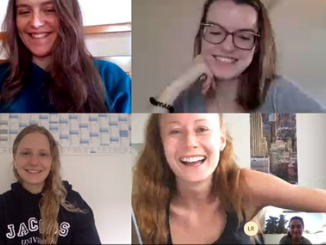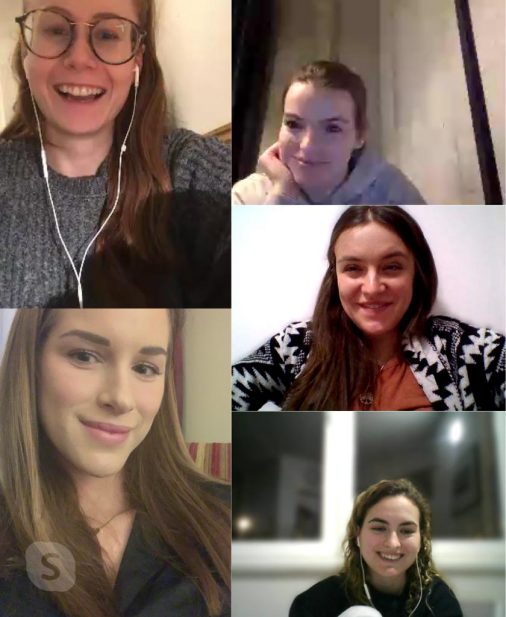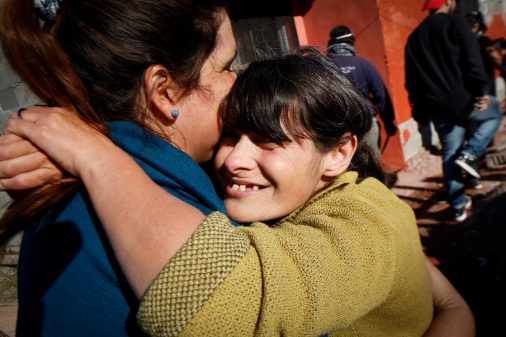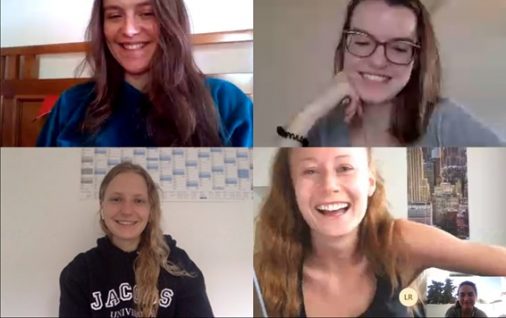

For those of you who do not know, the ESMT Master’s in Management program is a two-year program during which students acquire theoretical and practical knowledge, either through classes or through internships. Moreover, in the last part of the master’s program, where I am now, we put into practice everything we have learned by working as pro bono consultants for people anywhere in the world who need help. I decided, together with Diana (Romania), Emily (Belgium/USA), Jessica (Germany), Lena (Germany), and Svenja (Germany), to help Asociación Civil Andar, an NGO located in Moreno, a small town in the province of Buenos Aires Argentina.

We chose this project because we were all moved by their story. The mission of the NGO is to help people with disabilities to be included in society either by providing them with a decent job or by promoting their physical, mental and/or social development through the arts and sports.
Throughout several meetings with the team, our commitment to the cause became increasingly strong as the people working within the organization were full of passion, dedication, and generosity. As the weeks went by, we also learned more about the project and the current situation in Argentina. As you may know, the situation is very precarious and consequently its currency is very unstable, which has prevented them from planning their future projections for their next project, the construction of a sports center.
Asociación Civil Andar has been helping people with disabilities to improve their locomotive skills and their adaptation to society through sport for years, but now they want to help all people in the same way, but with a focus on sustainability. That is why we decided to help them in the development of a sustainable business model for the soccer fields through the analysis of their project.
When we chose this project, we saw the challenges we would face due to the economic situation of the country, but we wanted to accept the challenge. However, what we were not aware of was how the situation would turn around in the following weeks.
First, we had to cancel our flights to Argentina and stay in our residences, therefore communication with both the ESMT team and the team in Argentina was altered, also considering the time difference between Europe and South America.
Secondly, we had to change the objective of our project. In the initial plan, our team would help build a solid business model so that the NGO could continue its operations in the future, but now there was a bigger problem.
The community that the NGO helped was suffering more than ever. The state’s decision to force a lockdown during the corona crisis meant that many in the community lost their jobs and could no longer feed their families.
Another challenge that we faced was the language barrier. The organization in Argentina spoke only Spanish, a language they used in all their communication channels (web, Instagram, Facebook, email, Zoom etc.) and only two of the ESMT team members were able to speak Spanish.

To solve these problems, we focused solely on designing a good communication plan. To improve communication between us and the organization, we established regular meetings, shared information about our tasks daily, and assigned the communication with the organization in Argentina to the two Spanish speaking team members. These two people acted as communication intermediaries translating information from the web pages, emails or holding meetings with the organization where various topics were discussed with the team beforehand.
As communication was our new focus, we decided to develop a communication strategy for the NGO which we divided into three phases.
The first phase was based on fundraising, the second was to help position the NGO in the social networks to get private business funding.,and the third phase was focused on publicizing the sports centre in the Moreno area.
In the last 4 weeks we managed to raise funds via a fundraising platform to provide food baskets for 40 families and this number continues to increase. We produced content such as videos and informative documents to facilitate communication with private companies. We used our marketing skills to teach the NGO how to use social networks to gain an online presence and how to correctly track their performance by establishing the proper KPIs. This has increased their conversion rate by 200%. In addition, we identified a group of volunteers to oversee producing promotional materials for the final phase which will be implemented in the coming year.
Establishing this communication strategy, put into practice many of the skills we acquired during the MIM program. The most important thing for this project was to put into practice our ability to work in diverse teams, something that we learned at ESMT from day one. In addition, other theoretical learnings from courses such as strategy, marketing, and consulting were necessary for the success of the team.
After this great experience, I have to thank ESMT, on behalf of the entire team, for giving us the opportunity to help those who need it most. In doing so we developed leadership, problem-solving and adaptability skills including other soft skills such as authenticity, optimism, and confidence which will no doubt help us in our personal and professional development.

Gracias chicas! I loved to work with you!